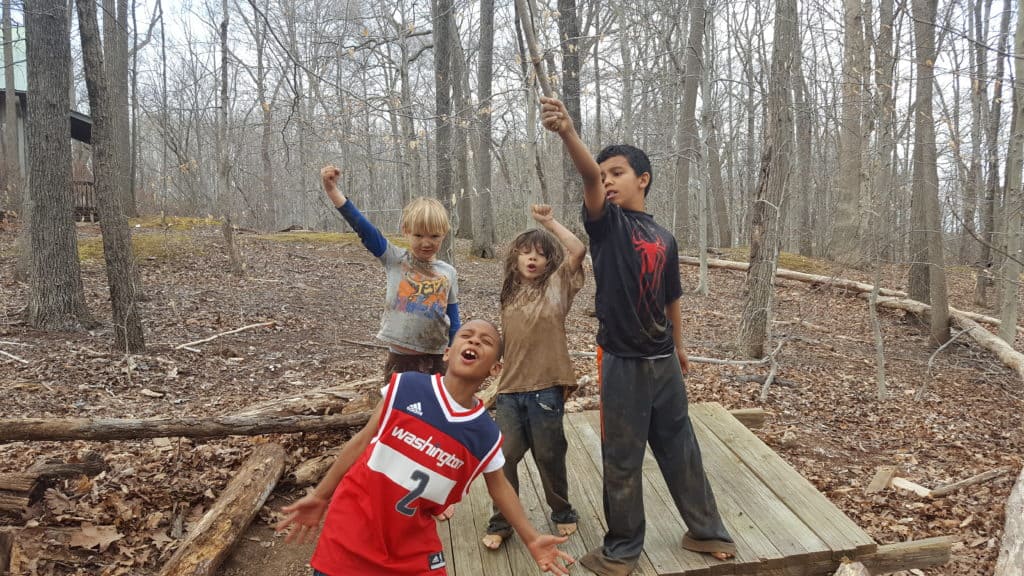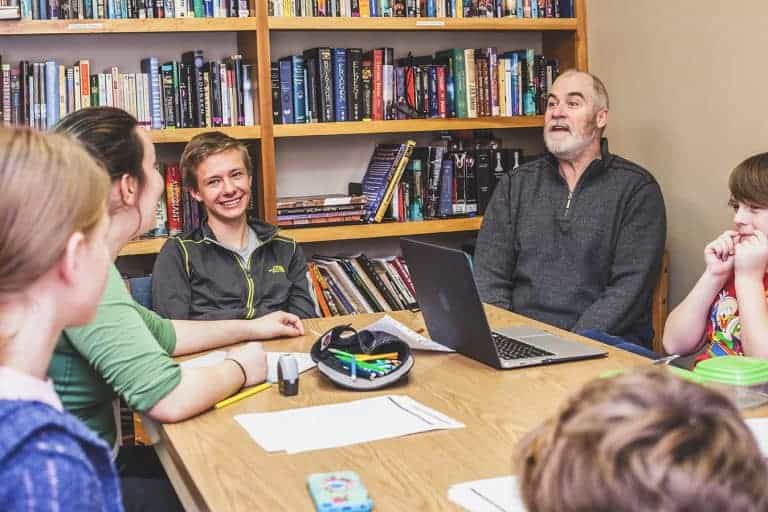Time to Play

A recent article in the Washington Post typifies common attitudes about playing at school these days. Apparently, five-year-old Caitlin Miller, of Raeford, North Carolina, was pretending to guard an imaginary king and queen at recess, and in her game, she picked up a “gun-shaped stick” and aimed it, presumably at pretend villains. Because of anti-violence policies, her school’s administration suspended her for one day.
While of course we here at Fairhaven School decry any actual school violence, we approach the natural, imaginary play of young people in a different way. We also address concerns about behavior differently. Perhaps a recent development here will help paint the contrast.
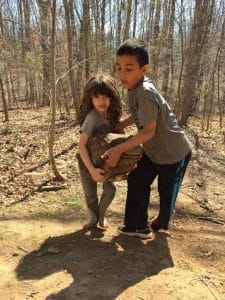
Over the past two years, we have enrolled a small tribe of people around Caitlin’s age, and one of their favorite spots to play on campus is just outside my office window. Because they are playing so hard, they seem to lose track not only of the windows and the people behind them, but they even lose track of time itself, as more than once at the end of the day I’ve seen parents collect their children from this spot after the school day has ended. They have deconstructed a nearby play fort and built a variety of new structures, and these change daily. As they’re next to the woods, at least one of them always seems to have a fake weapon in hand. They are building, negotiating, playing, and warring for big parts of every day, so much so that their play reminds me of a lovely children’s book by Alice McLerran called Roxaboxen, wherein the author recalls her mother’s stories of setting up an imaginary world with her friends. Here is the author’s description of her motive for writing the book:
” …a celebration of the active imagination, of the ability of children to create, even with the most unpromising materials, a world of fantasy so real and multidimensional that it earns a lasting place in memory.”

In the ongoing, two-decade project of searching for ways to talk about the dynamic of a Sudbury education, McLerran’s words rank right up there. We value and celebrate play here, even fantasy play that may involve fake weapons. Out my window, I’ve seen stick pistols, stick rifles, stick swords, stick knives, and maybe even a stick bazooka. They’ve also made flags, sandboxes, forts, homes, stores, and numerous other structures. In short, out there, imagination is king, and the students make the most of their “unpromising materials.”
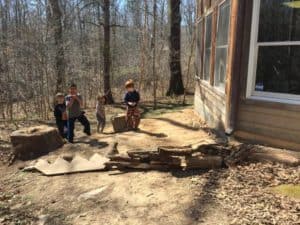
Although their pretend weapons do not break any of the democratically agreed upon rules of the school, their play does not transpire in a lawless vacuum. One day, we had a heavy rain, and their world suddenly had a river, and with that river came lots of mud. When two of our students decided to smear mud all over the window, the case landed in the school’s Judicial Committee (“JC”), where the students received a sentence to clean the window. If a dispute goes a bit too far, other cases may arrive. Further, if they lose interest in their world and leave a mess (they would not be the first!), they may also be called to the JC, where the case will be heard by their peers and they will be able to give a full accounting of their actions. However, they will not be charged (or suspended) for playing.
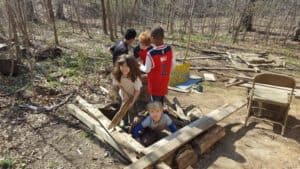
Google “the importance of play” and you will see the numerous books, articles, and research projects that validate what we and other Sudbury schools do and why we do it. One colleague from a sister school summarizes the process by saying “play makes you smarter.” Even though we hope that Caitlin and others will be treated more reasonably in the future, we write today simply to celebrate, with Alice McLerran, the ability of children to create and the joy of spending our days in a school like Fairhaven where we watch them invent entire worlds.
Mark McCaig
April, 2017
